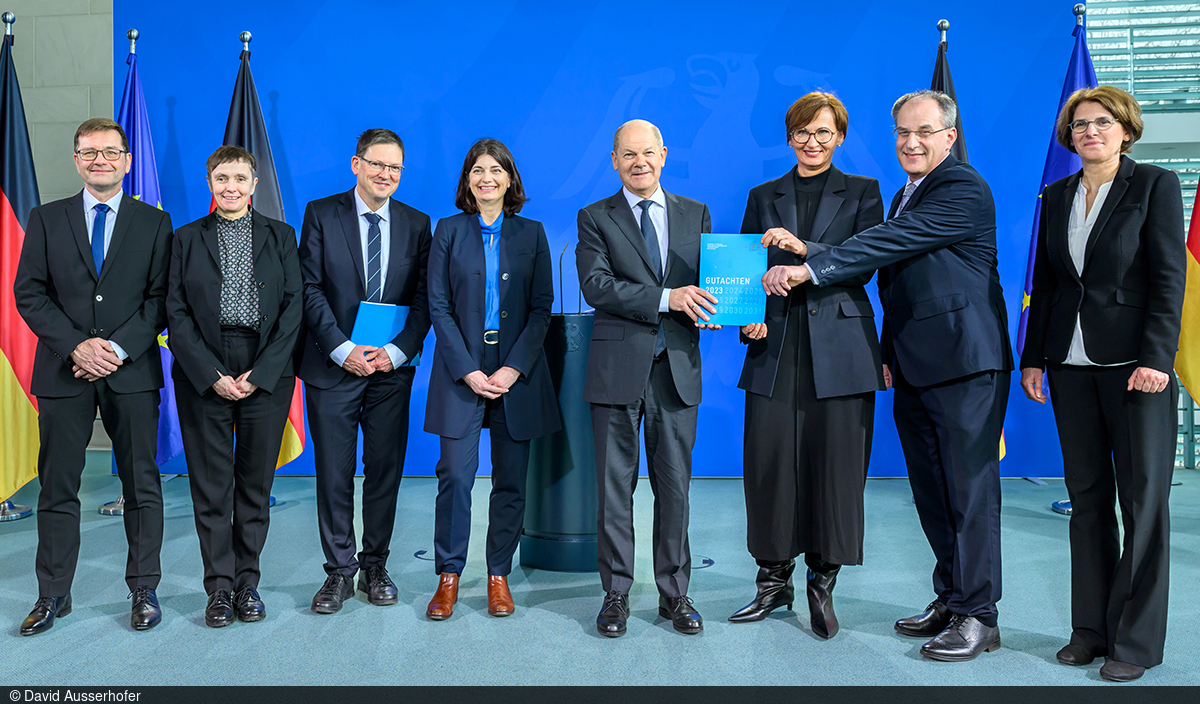Red Tape and Data Protection Are Stalling Innovation in Germany
ResearchThe 2023 EFI Report Points Out Shortcomings in Research and Innovation
The Commission of Experts for Research and Innovation (EFI) presented their annual report to German Chancellor Olaf Scholz. The presentation of the report is overshadowed the recently announced decision of the biotechnology company BioNTech recently announcing its decision to relocate its cancer research to the UK. ”We have been idle in Germany for far too long. Rather than advancing necessary reforms in the R&I system, we have allowed them to be delayed, and instead paid compensations and established expensive parallel structures. This needs to change to ensure Germany will continue to be an attractive research location in the future,” states Professor Irene Bertschek, head of the “Digital Economy” research unit at ZEW Mannheim and vice chair of the Expert Commission.
The EFI report clearly shows the increasing urgency to improve framework conditions for research and innovation (R&I). For years, existing data protection regulations have been stalling the development of a comprehensive and innovation-promoting data economy. Clear rules for the use of data need to be set urgently. Bertschek demands, “The German government should use its proposed national data strategy to set clear and understandable rules and eliminate ambiguities. Standardised rules for the interpretation of data protection regulations for all federal states are crucial. So far interpretations differ depending on the state. This incurs high costs and, in the worst case, impedes innovation.”
Red tape obstructs funding
In the annual report, EFI says, the most pressing problems are not a lack of funding, medical infrastructure or skills but rather bureaucratic hurdles and inadequate government regulations. Administrative burdens and inadequate government regulations are the most common factors that hamper health research in Germany and the application of innovative procedures. Compared to other European countries, the administrative burden for clinical trials is exceptionally high in Germany. BioNTech, for example, expressly justified the relocation of its cancer research with more research-friendly framework conditions in the UK.
Further topics featured in the 2023 EFI report include innovation in an ageing society, markets for technology and German aerospace between old and new space.


